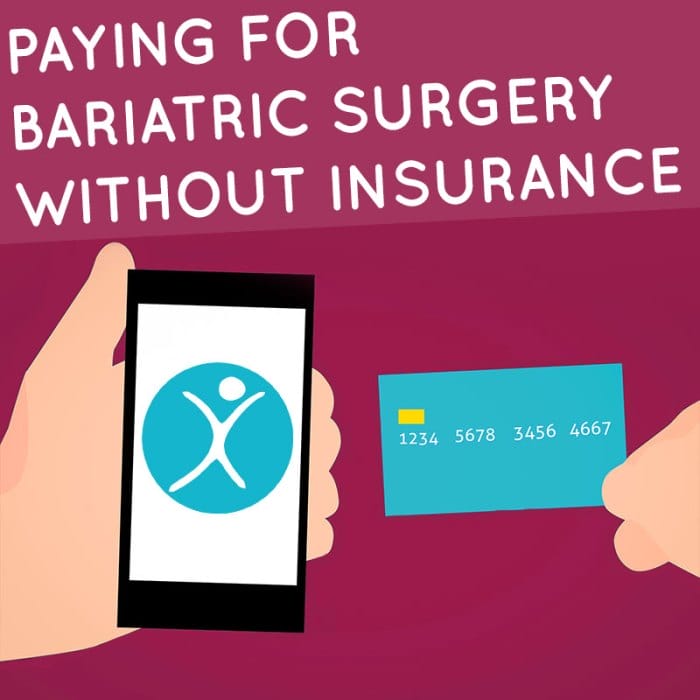When faced with the daunting prospect of surgery, the financial burden can often seem insurmountable, especially for those with inadequate insurance coverage. However, there are numerous avenues to explore and strategies to employ to alleviate the financial strain associated with surgical procedures.
This comprehensive guide delves into a multitude of options, ranging from financial assistance programs and payment plans to crowdfunding and government aid, empowering individuals to navigate the complexities of paying for surgery even with limited insurance.
From exploring alternative financing options to negotiating favorable terms with healthcare providers, this guide provides a roadmap for individuals to effectively manage the financial implications of surgery. By arming themselves with knowledge and understanding the available resources, individuals can take proactive steps to minimize the financial impact of surgery and prioritize their health and well-being.
Financial Assistance Programs
Financial assistance programs are available to help individuals and families cover the costs of medical expenses, including surgery. These programs can provide grants, loans, and other forms of financial aid to help patients pay for their medical care.
There are a number of organizations and government initiatives that provide financial assistance for medical expenses. Some of these programs include:
Government Programs
- Medicaid: A government program that provides health insurance to low-income individuals and families.
- Medicare: A government program that provides health insurance to people aged 65 and older, as well as people with certain disabilities.
- CHIP (Children’s Health Insurance Program): A government program that provides health insurance to children from low-income families.
Non-profit Organizations
- Patient Advocate Foundation: A non-profit organization that provides financial assistance to patients with cancer and other serious illnesses.
- HealthWell Foundation: A non-profit organization that provides financial assistance to patients with chronic or life-threatening illnesses.
- CancerCare: A non-profit organization that provides financial assistance and other support services to cancer patients and their families.
Eligibility Criteria and Application Procedures
The eligibility criteria and application procedures for financial assistance programs vary depending on the program. In general, patients must meet certain income and asset requirements in order to qualify for assistance. Patients may also be required to provide documentation of their medical condition and their financial need.
To apply for financial assistance, patients can contact the organization or government agency that administers the program. The application process typically involves filling out an application form and providing supporting documentation.
Payment Plans

Setting up payment plans with healthcare providers or hospitals can be a viable option for managing the cost of surgery with inadequate insurance coverage. These plans allow you to spread out the cost over time, making it more manageable and easing the financial burden.
Payment plans offer several benefits, including the ability to:
- Spread the cost of surgery over a longer period, making it more affordable.
- Avoid taking on high-interest debt or depleting savings.
- Maintain a good credit score by making regular payments on time.
Negotiating Favorable Terms and Conditions
When negotiating a payment plan, consider the following tips to ensure favorable terms and conditions:
- Be Prepared: Gather all relevant financial information, including your income, expenses, and assets, to demonstrate your ability to make regular payments.
- Shop Around: Compare payment plans offered by different healthcare providers or hospitals to find the one that best suits your financial situation.
- Be Proactive: Contact the billing department or financial counselor at the healthcare provider or hospital and express your willingness to set up a payment plan. Be open to discussing your financial circumstances and negotiating terms that work for both parties.
- Consider a Down Payment: Offering a down payment can demonstrate your commitment to the payment plan and may lead to more favorable terms.
- Explore Interest-Free Options: Some healthcare providers or hospitals may offer interest-free payment plans, which can save you money in the long run.
- Get Everything in Writing: Ensure that the terms and conditions of the payment plan are clearly Artikeld in a written agreement. This protects both parties and ensures that there are no misunderstandings.
Medical Credit Cards

Medical credit cards can be a lifesaver when you need to pay for surgery but have bad insurance. These cards are designed specifically for healthcare expenses, and they often offer lower interest rates and fees than traditional credit cards.
Comparing Medical Credit Cards
When choosing a medical credit card, it’s important to compare the interest rates, fees, and other terms of different cards. You’ll also want to consider your individual needs and circumstances. For example, if you have a good credit score, you may be able to qualify for a card with a lower interest rate.
If you need to make a large purchase, you may want to choose a card with a high credit limit.
Choosing the Right Medical Credit Card
The best medical credit card for you will depend on your individual needs and circumstances. Here are a few things to consider when choosing a card:
- Interest rate: The interest rate is the amount of money you’ll pay each month on your unpaid balance. Lower interest rates mean lower monthly payments.
- Fees: Medical credit cards often charge fees, such as an annual fee, a balance transfer fee, or a cash advance fee. Be sure to compare the fees of different cards before you choose one.
- Credit limit: The credit limit is the maximum amount of money you can borrow on your card. Choose a card with a credit limit that’s high enough to cover your surgery expenses.
- Rewards: Some medical credit cards offer rewards, such as cash back or points that can be redeemed for travel or merchandise. If you’re planning to use your card for a lot of purchases, you may want to choose a card with a rewards program.
Fundraising and Crowdfunding
In cases of insufficient insurance coverage for surgery costs, fundraising and crowdfunding platforms offer a viable solution for individuals seeking financial assistance. Crowdfunding involves harnessing the power of collective contributions from friends, family, and even strangers via online platforms.
Setting Up a Crowdfunding Campaign
Initiating a crowdfunding campaign requires careful planning and execution. Choose a reputable platform that aligns with your fundraising goals, such as GoFundMe or Kickstarter. Craft a compelling narrative that resonates with potential donors, highlighting the medical condition, treatment plan, and financial need.
Include high-quality images or videos to enhance the emotional impact. Set a realistic fundraising goal and provide regular updates to keep donors engaged.
Promoting the Campaign
Effective promotion is crucial for the success of a crowdfunding campaign. Utilize social media platforms, email lists, and personal networks to spread the word. Create shareable content, such as videos or infographics, that succinctly convey the campaign’s purpose. Collaborate with influencers or local organizations to expand your reach and attract more donors.
Success Stories
Crowdfunding has proven to be a lifeline for many individuals facing exorbitant surgery costs. In 2021, a young woman named Sarah launched a crowdfunding campaign to raise funds for a life-saving heart surgery. Through the generosity of over 1,000 donors, she surpassed her goal and successfully underwent the procedure.
Similarly, a family in California raised over $50,000 to cover the expenses of their child’s cancer treatment through a crowdfunding campaign.
Government Programs

In many countries, governments offer various programs to assist individuals in covering medical expenses, including surgical procedures. These programs can provide financial relief and make surgery more accessible to those who may otherwise struggle to afford it.
Eligibility criteria and application procedures vary depending on the specific program and country. Generally, these programs are designed to support individuals and families with low incomes or limited resources.
Medicaid
Medicaid is a government-sponsored health insurance program in the United States that provides coverage to low-income individuals, families, and certain disabled individuals. It is jointly funded by the federal government and individual states.
- Eligibility: To be eligible for Medicaid, individuals must meet specific income and asset limits set by each state. Eligibility criteria may also vary based on age, disability status, and family composition.
- Application Process: Individuals can apply for Medicaid through their state’s Medicaid agency. The application process typically involves providing personal and financial information, as well as documentation of income and assets.
- Coverage: Medicaid provides comprehensive coverage for a wide range of medical services, including surgery. The specific services covered may vary from state to state, but generally include hospital stays, physician visits, prescription drugs, and medical equipment.
Medicare
Medicare is a government-sponsored health insurance program in the United States that provides coverage to individuals aged 65 and older, as well as certain younger individuals with disabilities. It is funded through a combination of payroll taxes, premiums, and general revenue.
- Eligibility: To be eligible for Medicare, individuals must be aged 65 or older, or meet specific disability requirements. There are also income limits for certain Medicare benefits.
- Application Process: Individuals can apply for Medicare through the Social Security Administration. The application process typically involves providing personal and financial information, as well as documentation of age or disability status.
- Coverage: Medicare provides coverage for a wide range of medical services, including surgery. The specific services covered may vary depending on the type of Medicare coverage an individual has, but generally include hospital stays, physician visits, prescription drugs, and medical equipment.
Other Government Programs
In addition to Medicaid and Medicare, there may be other government programs available to assist individuals in paying for surgery. These programs can vary by country and may include:
- Temporary Assistance for Needy Families (TANF): This program provides temporary financial assistance to low-income families with children.
- Supplemental Security Income (SSI): This program provides monthly payments to individuals with disabilities or blindness who have limited income and resources.
- Veterans Affairs (VA) healthcare: This program provides healthcare services to veterans, including surgery, through the VA healthcare system.
Individuals who are considering surgery and are concerned about their ability to pay for it should explore available government programs. Eligibility criteria and application procedures vary, so it is important to contact the appropriate agencies or visit their websites for more information.
Insurance Coverage

Exploring the realm of insurance coverage presents opportunities to alleviate the financial burden associated with surgery. By investigating options for expanding or upgrading existing insurance policies, individuals can potentially secure broader coverage for their surgical expenses.
Supplemental Insurance Plans and Riders
Delving into the world of supplemental insurance plans and riders unveils additional layers of coverage that can complement existing policies. These specialized plans are designed to fill gaps in coverage, providing financial assistance for specific medical expenses, including surgical procedures.
- Critical Illness Insurance: Provides a lump sum benefit upon diagnosis of a severe illness, including certain surgical conditions.
- Accident Insurance: Offers coverage for injuries sustained in accidents, potentially including surgical interventions.
- Hospital Indemnity Insurance: Provides daily benefits during hospitalization, helping to offset expenses related to surgery and recovery.
Negotiating with Insurance Companies
Engaging in negotiations with insurance companies can yield positive outcomes, maximizing coverage for surgical expenses. By adopting a strategic approach, individuals can effectively advocate for their rights and secure optimal benefits.
- Review Policy Documents: Thoroughly examine policy documents to gain a comprehensive understanding of coverage details, exclusions, and limitations.
- Appeal Denied Claims: If a claim is denied, file an appeal with supporting documentation and evidence to justify the necessity of the surgical procedure.
- Seek Professional Assistance: Consider consulting an insurance advocate or attorney specializing in healthcare matters for guidance and representation during negotiations.
Medical Tourism

Medical tourism involves traveling to another country for surgery or medical treatment to take advantage of lower costs or specialized care not available in one’s home country. This option has gained popularity in recent years due to the increasing affordability and accessibility of international travel.
Medical tourism offers several potential benefits, including cost savings, access to specialized treatments, shorter waiting times, and the opportunity to combine medical care with a vacation. However, it also comes with certain risks and challenges, such as language barriers, cultural differences, and the potential for complications or substandard care.
Choosing a Reputable Medical Tourism Provider
Selecting a reputable medical tourism provider is crucial to ensure quality care and minimize risks. Consider the following factors when choosing a provider:
- Accreditation and Certification: Look for providers accredited by reputable international organizations, such as the Joint Commission International (JCI) or the International Society for Quality in Health Care (ISQua).
- Experience and Reputation: Research the provider’s experience in performing the specific surgery or treatment you need. Read reviews and testimonials from previous patients to gauge the quality of care.
- Transparency and Communication: Ensure the provider provides clear and transparent information about the surgery, risks, and expected outcomes. Effective communication is vital to ensure you understand the procedure and can make informed decisions.
- Cost and Payment Options: Compare the costs of surgery and treatment at different providers to find the best value. Inquire about payment options, including upfront payments, installment plans, or insurance coverage.
- Support Services: Consider the provider’s support services, such as language assistance, transportation, and accommodation arrangements. These services can make your medical tourism experience more comfortable and hassle-free.
Ensuring Quality Care
To ensure quality care during medical tourism, take the following steps:
- Research and Preparation: Thoroughly research the surgery, risks, and potential complications. Prepare a list of questions to ask your doctor and the medical tourism provider.
- Communication: Maintain open communication with your doctor and the medical tourism provider throughout the process. Express your concerns and ask questions to ensure you fully understand the procedure and its implications.
- Informed Consent: Before undergoing surgery, ensure you have provided informed consent, indicating your understanding of the risks and benefits of the procedure.
- Post-Operative Care: Discuss post-operative care with your doctor and the medical tourism provider. Make arrangements for follow-up appointments and ensure you have access to necessary medications and support.
Grants and Scholarships

In the face of overwhelming medical expenses, grants and scholarships can be lifelines for those seeking surgical interventions. Numerous organizations and foundations recognize the financial burden of medical procedures and offer assistance to deserving individuals. These grants and scholarships provide a glimmer of hope, enabling patients to access the treatment they desperately need.
Eligibility Criteria and Application Procedures
The eligibility criteria and application procedures for grants and scholarships vary depending on the organization or foundation offering the assistance. Typically, applicants must demonstrate financial need, provide medical documentation supporting the necessity of the surgery, and submit a compelling personal statement outlining their circumstances and the impact the surgery would have on their life.
Some grants and scholarships may also consider factors such as academic achievement, community involvement, or military service.
To apply for a grant or scholarship, individuals should thoroughly research the available options, carefully review the eligibility requirements, and diligently complete the application forms. Deadlines for applications vary, so it’s crucial to plan accordingly and submit the application well in advance.
Success Stories
Numerous individuals have benefited from the generosity of organizations and foundations that provide grants and scholarships for medical expenses. Here are a few heartwarming success stories:
- Sarah’s Story: Sarah, a single mother of two, was diagnosed with a life-threatening heart condition. The cost of the surgery she needed was astronomical, and she had no means to cover it. A local foundation stepped in and awarded her a grant that covered the entire cost of the surgery. Today, Sarah is fully recovered and is able to provide for her children.
- John’s Story: John, a talented young athlete, was involved in a devastating car accident that left him paralyzed from the waist down. The cost of the surgery he needed to regain mobility was beyond his family’s reach. A national scholarship fund came to his aid, providing him with the financial support he needed to undergo the surgery. John is now back on his feet and pursuing his dream of becoming a Paralympic athlete.
These stories exemplify the transformative impact that grants and scholarships can have on the lives of those facing insurmountable medical expenses. By providing financial assistance, these organizations and foundations empower individuals to access life-saving and life-changing surgeries, restoring their health and enabling them to live full and productive lives.
Discounts and Negotiated Rates

Navigating surgery costs with inadequate insurance can be daunting. Fortunately, exploring discounts and negotiating rates can significantly reduce the financial burden. Here are strategies for securing the best deals:
Research and Comparison
Before committing to a healthcare provider or hospital, conduct thorough research. Compare prices for similar procedures across different facilities. Check online reviews and patient testimonials to gauge the quality of care and reputation.
Early Inquiries
Don’t wait until the last minute to inquire about discounts. Reach out to the billing department or patient financial services office early on to explore available options. Being proactive can increase your chances of securing a better deal.
Negotiation Techniques
-
-*Be Polite and Respectful
Approach negotiations with courtesy and respect. Building rapport with healthcare providers can make them more receptive to your requests.
-*Explain Your Situation
Share your financial constraints and explain why you’re seeking a discount. Honesty and transparency can evoke empathy and willingness to help.
-*Ask for Itemized Bill
Request a detailed breakdown of all charges associated with the surgery. This allows you to identify areas where discounts can be applied.
-*Consider Alternative Payment Options
Explore the possibility of making a lump-sum payment or setting up a payment plan. Some providers offer discounts for upfront payments or timely installments.
-*Seek Multiple Quotes
Obtain quotes from multiple healthcare providers for the same procedure. Comparing prices can give you leverage during negotiations.
-*Leverage Insurance Coverage
If you have any insurance coverage, even if it’s limited, inform the provider. They may be willing to work with you to minimize out-of-pocket expenses.
-*Be Assertive
While being polite, don’t hesitate to advocate for yourself. Express your willingness to seek care elsewhere if a reasonable discount is not offered.
Alternative Financing Options

When faced with the high costs of surgery and inadequate insurance coverage, individuals may consider alternative financing options to cover their medical expenses.
These options can provide a safety net and alleviate the financial burden associated with surgery.
Personal Loans
Personal loans are unsecured loans offered by banks, credit unions, and online lenders. They provide a lump sum of money that can be used for various purposes, including medical expenses. Personal loans typically have fixed interest rates and repayment terms ranging from one to seven years.
To qualify for a personal loan, individuals must have a good credit score and a steady source of income. Interest rates on personal loans vary depending on the borrower’s creditworthiness and the lender’s policies.
Home Equity Loans and Lines of Credit
Homeowners can leverage their property’s equity to secure financing for medical expenses. Home equity loans and lines of credit allow homeowners to borrow against the value of their home, using the property as collateral.
Home equity loans provide a fixed amount of money, while home equity lines of credit (HELOCs) offer a revolving line of credit that can be drawn upon as needed. Interest rates on home equity loans and HELOCs are typically lower than those on personal loans, as the loan is secured by the property.
Credit Cards
Medical credit cards are specialized credit cards designed specifically for medical expenses. They often offer promotional financing options, such as 0% introductory APR periods or low interest rates for a limited time. Medical credit cards can be a good option for individuals who need to cover immediate medical costs and can pay off the balance in full during the promotional period.
However, it is important to use medical credit cards responsibly and pay off the balance in full each month to avoid high interest charges.
Final Thoughts
With determination and resourcefulness, individuals can overcome the challenges posed by inadequate insurance coverage and successfully navigate the financial complexities of surgery. By exploring the diverse options Artikeld in this guide, patients can alleviate the financial burden, prioritize their health, and embark on the path to recovery with greater peace of mind.
FAQ
Can I negotiate payment terms directly with my healthcare provider or hospital?
Yes, many healthcare providers and hospitals are willing to work with patients to establish payment plans that accommodate their financial circumstances. Open communication and negotiation can often lead to favorable terms, such as extended payment periods or reduced fees.
Are there any government programs that provide financial assistance for surgery?
Government programs such as Medicaid and Medicare may offer financial assistance for surgery, depending on eligibility criteria. Additionally, certain states and counties have programs that provide financial aid for medical expenses, including surgery.
What are the benefits of using a medical credit card for surgery expenses?
Medical credit cards offer specialized financing options tailored to healthcare expenses. They often come with lower interest rates and extended repayment periods compared to traditional credit cards, making them a viable option for managing surgery costs.
Can I raise funds for surgery through crowdfunding platforms?
Crowdfunding platforms provide a means for individuals to solicit financial contributions from the public to cover medical expenses, including surgery. With effective storytelling and a compelling campaign, crowdfunding can be a successful way to alleviate the financial burden of surgery.
Are there any organizations or foundations that offer grants or scholarships for surgery?
Numerous organizations and foundations provide grants or scholarships specifically for medical expenses, including surgery. These grants and scholarships are often awarded based on financial need, medical condition, and other criteria.



